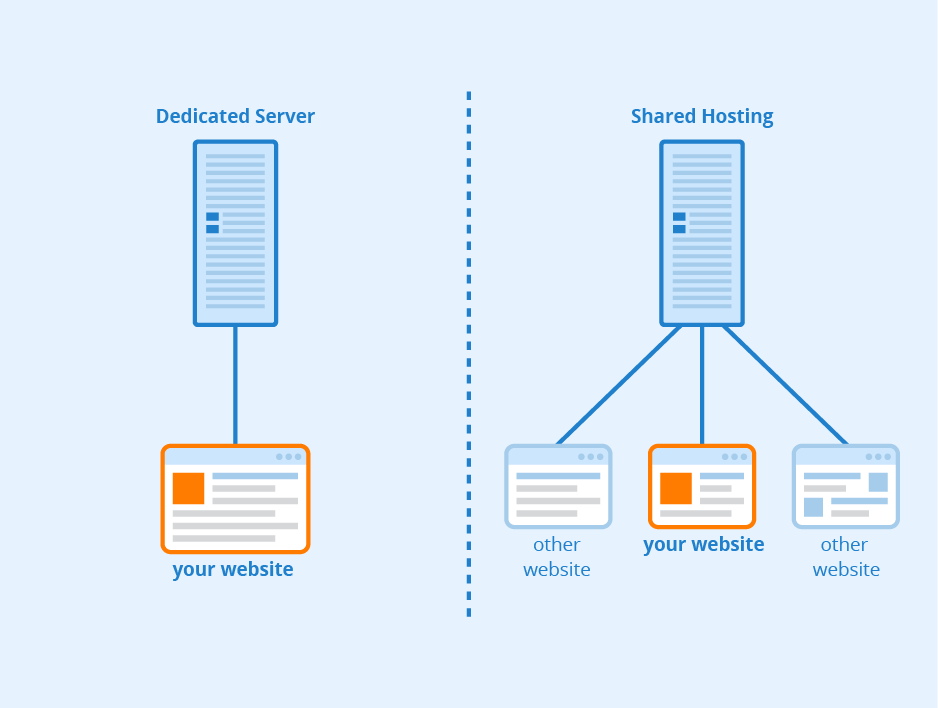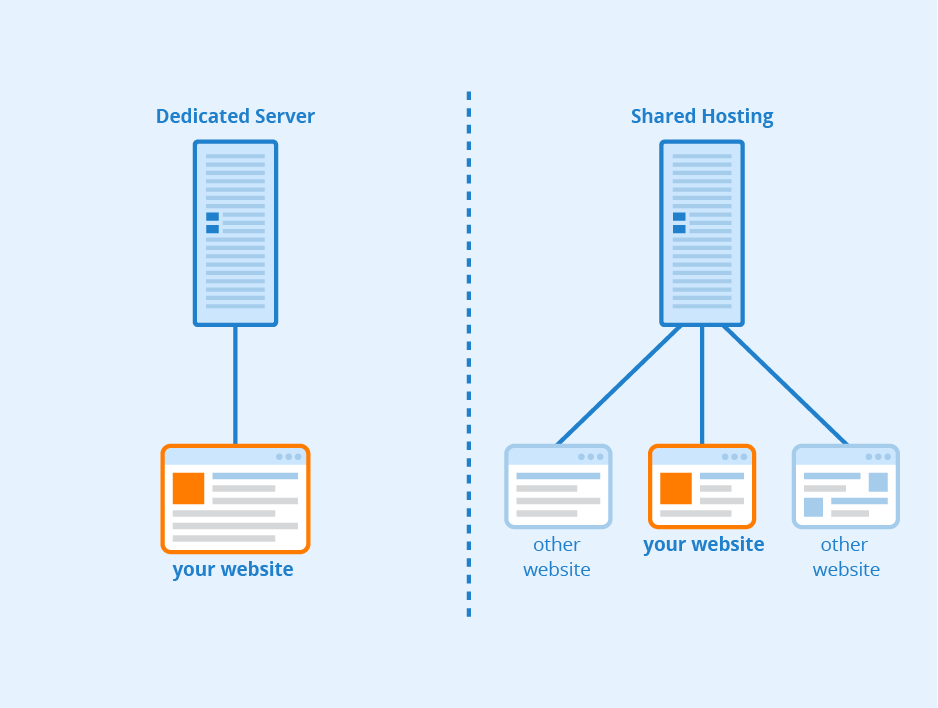When it comes to choosing the right hosting option for your website, there are two popular choices: VPS and shared hosting. But which one is better? Well, here’s an interesting fact: Did you know that VPS hosting provides better performance and more control compared to shared hosting? It’s true!
Now, let’s dive into the key aspects of VPS hosting that make it a superior choice. Unlike shared hosting, where multiple websites share the same server resources, VPS hosting offers dedicated resources and isolated environments for each website. This means that you don’t have to worry about other websites hogging the server’s resources and impacting your website’s performance. In addition, VPS hosting allows you to customize your server settings and install any software or applications that you need, giving you full control over your website’s environment.
In terms of performance and flexibility, VPS (Virtual Private Server) hosting is often better than shared hosting. With VPS hosting, you have dedicated resources, better security, and the ability to scale as your website grows. Shared hosting, on the other hand, limits your resources and can be slower due to sharing with other websites. While shared hosting is more cost-effective, VPS hosting offers more control and reliability for professional websites.

Understanding the Difference Between VPS and Shared Hosting
When it comes to hosting a website, whether for personal use or business purposes, choosing the right type of hosting is crucial. Two popular options that individuals and businesses often consider are VPS (Virtual Private Server) hosting and shared hosting. While both have their advantages and disadvantages, it’s essential to understand the differences between the two to make an informed decision.
Shared hosting involves multiple websites being hosted on a single server. This means that the resources of that server, such as processing power, memory, and bandwidth, are shared among all the websites. On the other hand, VPS hosting provides a virtual private server within a physical server. This means that the resources allocated to a VPS are dedicated and not shared with other websites.
A key difference between VPS and shared hosting is the level of control and resources available. With shared hosting, you have limited control over the server and its settings. Additionally, since resources are shared among multiple websites, performance may be affected if one website experiences high traffic or exceeds its resource allocation. In contrast, VPS hosting provides more control over the server, allowing you to customize settings and allocate resources as needed. This ensures better performance and stability, even during periods of high traffic.
In terms of security, VPS hosting also offers advantages over shared hosting. With shared hosting, there is a higher risk of security breaches as a compromised website can potentially affect other websites on the same server. However, with VPS hosting, each website operates within its own virtual environment, providing isolation and enhanced security.
Performance and Resources
One of the primary concerns when choosing a hosting option is performance and the availability of resources. Let’s take a closer look at how VPS and shared hosting differ in terms of performance and resource allocation.
Shared Hosting: Shared Resources and Performance Impact
In a shared hosting environment, multiple websites are hosted on the same server and share its resources. This means that the performance of your website can be affected by the activities of other websites. If one website on the server experiences a sudden surge in traffic, it can use a significant portion of the available resources, leaving less for other websites. This can lead to slow loading times and decreased performance for your website.
Additionally, since the server’s resources are limited and shared among all the websites, your resource allocation may also be limited. This can impact the amount of bandwidth, storage, and processing power available for your website. If your website requires high resource usage or experiences spikes in traffic, shared hosting may not be able to handle the demand effectively, leading to decreased performance.
Furthermore, there may be restrictions on certain server settings and software installations in a shared hosting environment. This can limit your ability to customize and optimize your website according to your specific needs.
VPS Hosting: Dedicated Resources and Enhanced Performance
With VPS hosting, your website operates within its own virtual environment, providing dedicated resources that are not shared with other websites. This means that the performance of your website is not impacted by the activities of neighboring websites.
Since you have more control over the VPS server, you can allocate resources according to your specific needs. This allows you to scale the resources allocated to your website, ensuring optimal performance even during periods of high traffic. You can also install custom software and configure server settings to enhance your website’s performance and security.
VPS hosting also provides better stability and reliability compared to shared hosting. Since your website has dedicated resources, it is less susceptible to performance fluctuations caused by other websites on the server.
Security and Isolation
Another crucial aspect to consider when choosing a hosting option is security. Let’s explore how VPS and shared hosting differ in terms of security and isolation.
Shared Hosting: Increased Risk of Security Breaches
In a shared hosting environment, the websites hosted on the server share the same resources and operating system. This means that if one website on the server is compromised, there is a risk of other websites being affected as well. A security breach on one website can potentially lead to unauthorized access to the server and impact the performance and security of other websites.
Shared hosting environments typically have security measures in place to prevent such scenarios, but the risk is still higher compared to VPS hosting. Additionally, since you have limited control over the server settings and the actions of other website owners, it can be challenging to ensure the security of your website.
VPS Hosting: Enhanced Security and Isolation
With VPS hosting, each website operates within its own virtual environment, providing isolation from other websites on the server. This isolation enhances security and reduces the risk of security breaches due to actions taken by other websites.
You have more control over the security settings and can implement additional security measures specific to your website’s needs. This includes installing robust firewalls, implementing SSL certificates, and regularly updating security patches.
Furthermore, since you have exclusive access to the server’s resources, there is a lower risk of performance fluctuations or security vulnerabilities caused by other websites. This ensures that your website remains stable and secure.
Choosing the Right Option for Your Needs
When deciding between VPS hosting and shared hosting, it’s crucial to consider your specific requirements and the needs of your website.
Shared hosting is typically more affordable and suitable for smaller websites or individuals with limited technical knowledge. It is a cost-effective option that provides the necessary resources for basic website functionality.
On the other hand, VPS hosting offers more control, customization, and scalability. It is suitable for websites that require higher resource allocations, expect significant traffic, or have specific software requirements. VPS hosting is also beneficial for businesses that prioritize security and want to ensure the smooth performance of their website.
Ultimately, the choice between VPS hosting and shared hosting depends on your website’s specific needs, budget, and technical expertise. Assess your requirements, evaluate the pros and cons of each option, and select the hosting solution that aligns with your goals and expectations.
Remember, the right hosting choice can significantly impact your website’s performance, security, and overall success. Make an informed decision to provide the best online experience for your visitors.
For more information on hosting options and insights into making money online, visit thelink.
Key Takeaways
- A VPS (Virtual Private Server) offers more resources and control compared to shared hosting.
- VPS hosting is more scalable, allowing you to easily upgrade or downgrade your resources as needed.
- With VPS hosting, you have dedicated resources that are not shared with other users, improving performance and security.
- Shared hosting is more cost-effective for small websites with low traffic.
- VPS hosting is recommended for websites that require more control, customization, and higher performance.
When comparing VPS (Virtual Private Server) hosting to shared hosting, it’s clear that VPS offers superior performance and control. With VPS hosting, you have your own dedicated resources, allowing your website to load faster and handle more traffic. Additionally, you have more control over the server settings, enabling you to customize it to your specific needs.
Shared hosting, on the other hand, involves multiple websites sharing the same resources, resulting in slower loading times and limited control over server settings. While shared hosting may be more affordable, it can be limiting for websites that require more resources or have higher traffic volumes.

